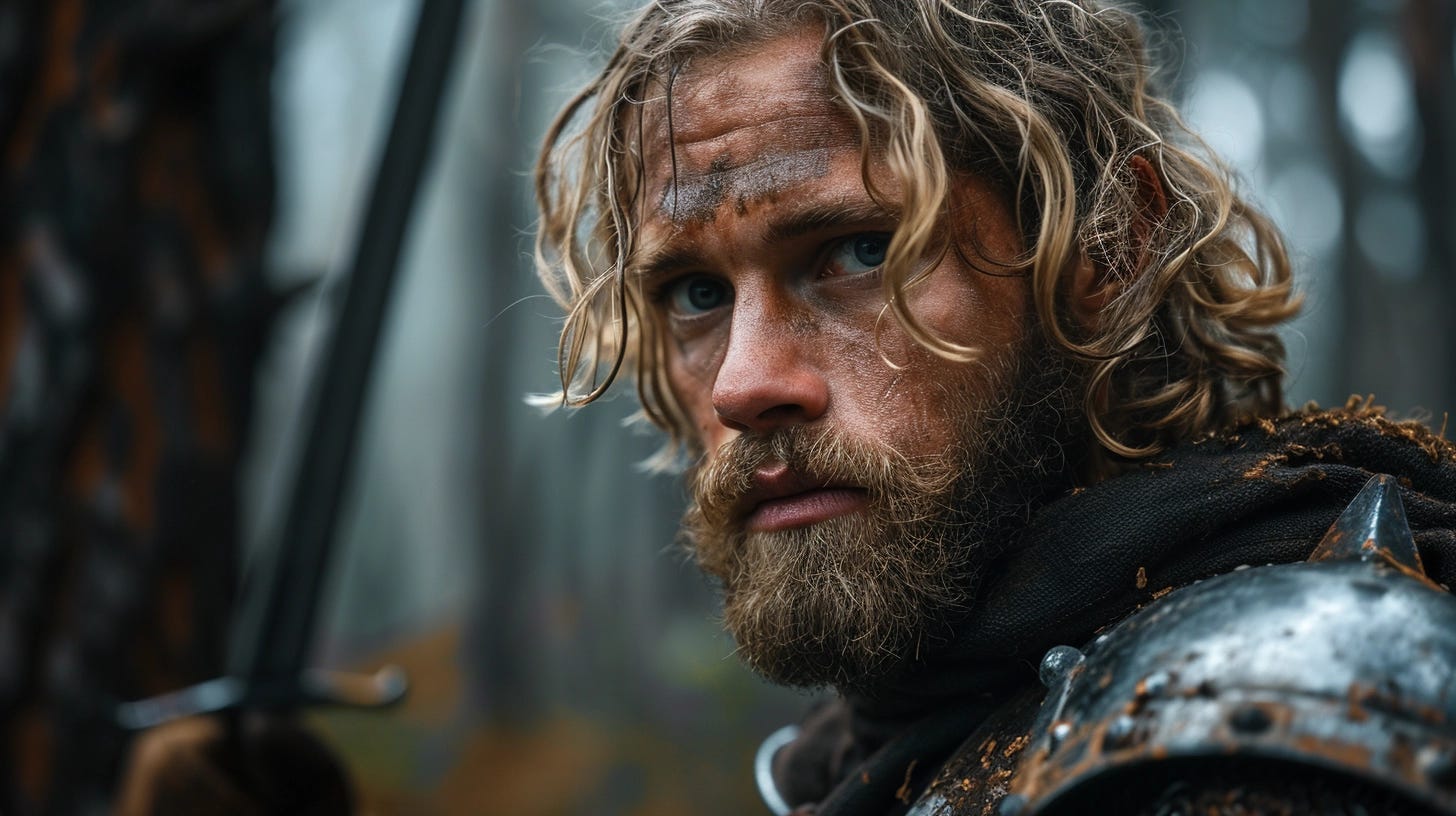The Making of a Hero
In Hesiod’s cycle of the ages, there arose the possibility for an “age of heroes” to emerge against the backdrop of the Kali Yuga, a restoration of Golden Age principles that would bring the dawn of a new cycle. According to Hesiod, the generation of heroes was created by Zeus, who represents the Olympian principle. Thus, when we speak of heroes, we are not referring to someone who merely does good deeds, but one who has attained a supernatural immortality on a transcendent plane. This immortality is the Holy Grail the knights of the legends strive for, and their many adventures serve as initiatic allegories in pursuit of the ultimate prize.
The mythological hero has, as his raw material, what Evola calls a titanic type— the coarse, brutish, unrefined warrior. This raw material must be transformed and transfigured into an Olympian type, through the overcoming of the human condition, which is also the path of chivalric knighthood. This is a dangerous path and mythology is littered with would-be heroes from Prometheus to the Biblical Adam who failed to make the Olympian leap. Evola outlines two conditions that must be fulfilled if an Olympian hero is to be made out of a mere warrior.
Keep reading with a 7-day free trial
Subscribe to PhilosophiCat’s Newsletter to keep reading this post and get 7 days of free access to the full post archives.

